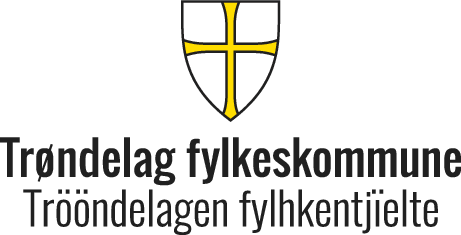What role can the arts have in facilitating health and well-being? How can engaging in music, writing and other forms of creativity contribute to self-expression and healthy ageing?
In this mini-seminar researchers within welfare technology, creative writing and neurology will talk about current research projects and discuss different perspectives on the topic.
There will be time for questions and discussion after the presentations. See full programme and more about the speakers below.
Date: Thursday 9 May
Time: 11.30-12.30
Place: The Medicine and Health Library,
Floor 2 in the Knowledge Centre
Øya campus
No registration. The event is free and open to all.
Coffee and tea will be served.
Programme:
11.30-11.35:
Presentation of The Norwegian Resource Centre for Arts and Health
by Odd Håpnes
11.35-12.30:
Music and the aging brain. Can music help us age better?
By Joan Vidal Crespi
SENSE-GARDEN: Personalised and immersive spaces for people with dementia
by Artur Serrano
Beyond physical space: Creating environments for emotional connection
by Gemma Goodall
Writing about the (poetic) nuances of life. Why does it matter for our mental health?
by Olga Lehmann
12.30-12.45:
Questions and discussion
Abstracts and author bios
The Norwegian Resource Centre for Arts and Health is a national centre based in Levanger. The centre has five partners: Levanger Municipality, Trøndelag County, Nord University, Helse Nord-Trøndelag HF and HUNT Research Center, NTNU. The centre is developing interaction between research, education and practice, and documents and develops song, dance and other expressions of the arts within a professional health and care-giving framework.
SENSE-GARDEN: Personalised and immersive spaces for people with dementia
by Artur Serrano
I will talk about our experience with the SENSE-GARDEN project, where 4 countries are collaborating to create personalised and immersive spaces for people with dementia. These spaces are adaptable rooms, where images, films, surround music and aromas, are combined to create a unique experience to the visitors. An experience that is related to the memories of their own life. These sensorial stimuli will help them to recall emotions from the past, and through these connect with the present and with the ones around them.
Artur Serrano, Professor of Welfare Technology at the Faculty of Medicine and Health Sciences/NTNU, also employed at the Norwegian Centre for for E-health Research. His current main research interests are in interaction between technology and its users, and especially the use of technology in dementia care. Serrano is the founders and leader of NTNU’s ImRo Lab – Immersive Technologies and Robotics Laboratory, experimenting on virtual and physical imagined realities for care technologies, and socialising with robots. He currently coordinates the EU-funded project “SENSE-GARDEN” (https://sense-garden.eu) of which he will be talking about.
Email: artur.serrano@ntnu.no
Beyond physical space: Creating environments for emotional connection
by Gemma Goodall
What do we mean when we talk about space? In her talk, Gemma will share primarily findings from the SENSE-GARDEN project in terms of emotion, self-identity and connection. She will discuss ideas on how personalized, immersive spaces can facilitate self-expression and opportunities for bonding between people living with dementia and their family members.
Gemma Goodall is a PhD candidate at the Department of Neuromedicine and Movement Science, NTNU. She is an artist and musician with a background in music psychology, and her research interests focus primarily on the potential of the arts to benefit people living with dementia. She is currently working as part of an EU-funded project, “SENSE-GARDEN”, on which her PhD is focused. Gemma is also Norway’s representative for the Arts and Health Early Career Research Network.
Music and the aging brain. Can music help us age better?
By Joan Vidal Crespi
Joan Vidal Crespi is a neurology consultant at St Olav’s University hospital and PhD candidate at NTNU. Research focus: facial pain and headache. Studied violin and composition at the Conservatory of Palma de Mallorca.
Writing about the (poetic) nuances of life. Why does it matter for our mental health?
by Olga Lehmann
In this talk, Olga Lehmann will address some psychological perspectives related to (poetic) writing, such as self-exploration and emotional agility. In particular, she will share some preliminary findings of her research project that focuses on exploring the processes and outcomes of writing courses for older adults in Oslo and Trondheim. Some of these findings relate to motivation, memory, attention and existential meaning.
Olga V. Lehmann, Ph.D., is a postdoctoral fellow at the Department of Mental Health, NTNU Norwegian University of Science and Technology. She is also the Head (and heart) of Health and Compassionate practices at Pracademy, a global innovation training company. She is a poetess, teacher, psychologist and researcher interested in feelings and emotions, silence-phenomena, meditative and contemplative practices, communication, poetic instants, and well-being. She has edited Acompanar la finitud (San Pablo, 2014), as well as co-edited Poetry and Imagined Worlds (Palgrave, 2017), Deep Experiencing: Dialogues Within the Self 2017, SpringerBriefs) and Poesikveld i Trondheim: en antologi (Forlaget Beijing Trondheim, 2017). She runs writing courses for older adults as part of her current research project at NTNU and hosts the poesikveld in Trondheim -an inclusion-through-poetry community initiative.
About the seminar
The seminar is facilitated by The Medicine and Health Library. Contact us at post@bmh.ntnu.no if you want to collaborate, or use the library for events and exhibitions.




